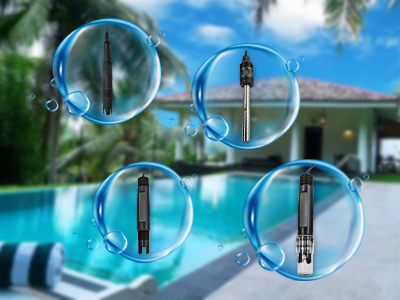To combat water scarcity and manage water efficiently, there is the innovative technology of smart water monitor. In this article, we will explore the concept of smart water monitors, their benefits, and their potential to revolutionize water management practices

Understanding Smart Water Monitor:
Smart water monitor are advanced devices that integrate sensors and Internet of Things (IoT) technology to collect, analyze, and transmit real-time data about water consumption and quality. These devices can be installed in various settings, including residential buildings, commercial establishments, and agricultural fields. The collected data is then sent to a centralized system for analysis and monitoring.
Key Features and Benefits:
a. Real-time monitoring: Smart water monitors provide continuous and real-time information about water consumption, leaks, pressure, and flow rates. This allows users to identify and address potential issues promptly, preventing wastage and reducing water bills.

b. Leak detection: One of the primary advantages of smart water monitors is their ability to detect leaks in the water supply system. By alerting users to even minor leaks, these devices help prevent water loss and minimize damage to infrastructure.
c. Water quality monitoring: Some advanced smart water monitors also include sensors that monitor water quality parameters such as pH levels, turbidity, and chemical contaminants. This ensures that the water being used is safe for consumption or other purposes.
d. Automated controls: Smart water monitors can be integrated with automated control systems, allowing users to remotely manage and optimize their water usage. This feature enables better resource management and enhances efficiency.
e. Data analytics: The data collected by smart water monitors can be analyzed to identify patterns, trends, and anomalies. This information is invaluable for planning water conservation strategies, optimizing infrastructure, and making informed policy decisions.
Impact on Water Management Practices:
a. Conservation: Smart water monitors empower users to track their water usage, identify inefficiencies, and modify their behavior accordingly. By promoting water-conscious habits, these devices contribute to overall water conservation efforts.
b. Infrastructure optimization: The real-time data provided by smart water monitors helps utilities and municipalities identify areas with high water consumption or leakage rates. This information allows them to prioritize infrastructure maintenance and make targeted improvements, reducing water loss and improving overall system efficiency.
c. Sustainable agriculture: By monitoring and managing water usage in agricultural fields, smart water monitors can help farmers optimize irrigation systems and reduce water waste. This promotes sustainable agricultural practices, conserves water resources, and enhances crop yields.
d. Water resource planning: The comprehensive data collected by smart water monitors enables policymakers and water authorities to develop effective water management strategies. They can identify areas of high demand, plan for future needs, and allocate resources more efficiently.
Challenges and Future Developments:
While smart water monitors offer immense potential, there are challenges that need to be addressed. These include initial installation costs, data security concerns, and the need for widespread implementation.
Future developments in this field may include advancements in sensor technology, enhanced data analytics capabilities, and increased interoperability with other smart systems. Additionally, integrating artificial intelligence algorithms into smart water monitors could further optimize water management practices.
Conclusion:
Smart water monitors represent a significant leap forward in water management technology. By providing real-time data, enabling leak detection, and promoting efficient water usage, these devices have the potential to revolutionize the way we manage water resources. As we continue to face water scarcity challenges, adopting smart water monitor technology will play a crucial role in achieving sustainable water management and securing our future water needs.